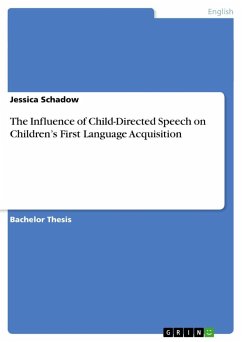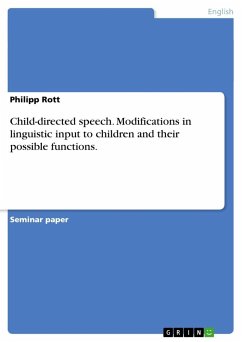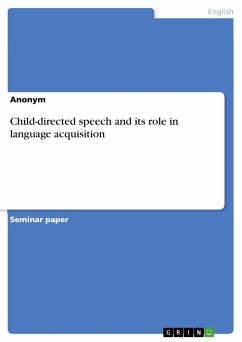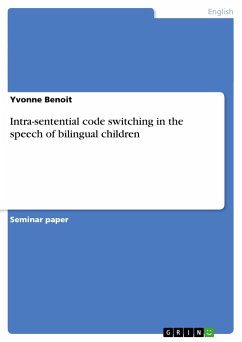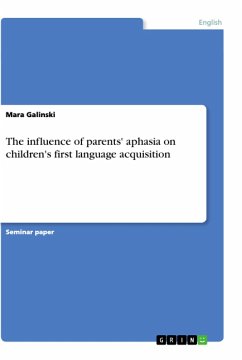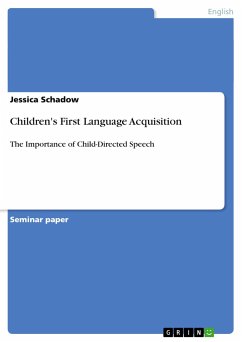
Children's First Language Acquisition
The Importance of Child-Directed Speech
Versandkostenfrei!
Versandfertig in 1-2 Wochen
17,95 €
inkl. MwSt.

PAYBACK Punkte
0 °P sammeln!
Seminar paper from the year 2013 in the subject English Language and Literature Studies - Linguistics, grade: 1,3, (Anglistik/Amerikanistik), course: First Language Acqisition, language: English, abstract: The first chapter of this paper will deal with some theoretical background. The point of view on language learning of Noam Chomsky, one of the most famous representatives of the Nativist approach, will be shortly presented and briefly compared to other approaches. In the subsequent chapter, it will be explained what child-directed speech actually means and how important the role of joint att...
Seminar paper from the year 2013 in the subject English Language and Literature Studies - Linguistics, grade: 1,3, (Anglistik/Amerikanistik), course: First Language Acqisition, language: English, abstract: The first chapter of this paper will deal with some theoretical background. The point of view on language learning of Noam Chomsky, one of the most famous representatives of the Nativist approach, will be shortly presented and briefly compared to other approaches. In the subsequent chapter, it will be explained what child-directed speech actually means and how important the role of joint attention is in this context. Afterwards, some typical characteristics will be taken into consideration in order to demonstrate the extent of features when talking about child-directed speech. Important for further explanation regarding the importance of child-directed is the following chapter, which will focus on a study by Anne Fernald. This study concentrates on infant's preferences to child-directed speech versus adult-directed speech and was measured with the use of a specific head-turn procedure, which will be explained in detail later on. After that, a second study, which is about gender differences in child-directed speech, will be examined. The authors of this study, Amye Warren-Leubecker and John Neil Bohanon III, closely considered gender differences and the effects on child-directed speech. Thus, on the basis of the above-mentioned procedure, the aim of this paper is to balance reasons who confirm the view that child-directed speech is necessary and supportive for the child in order to be able to learn a language.



